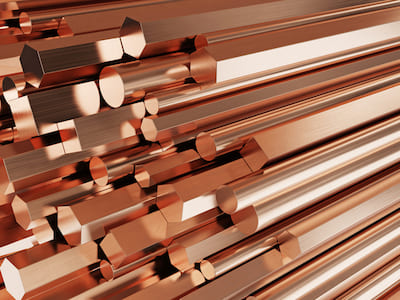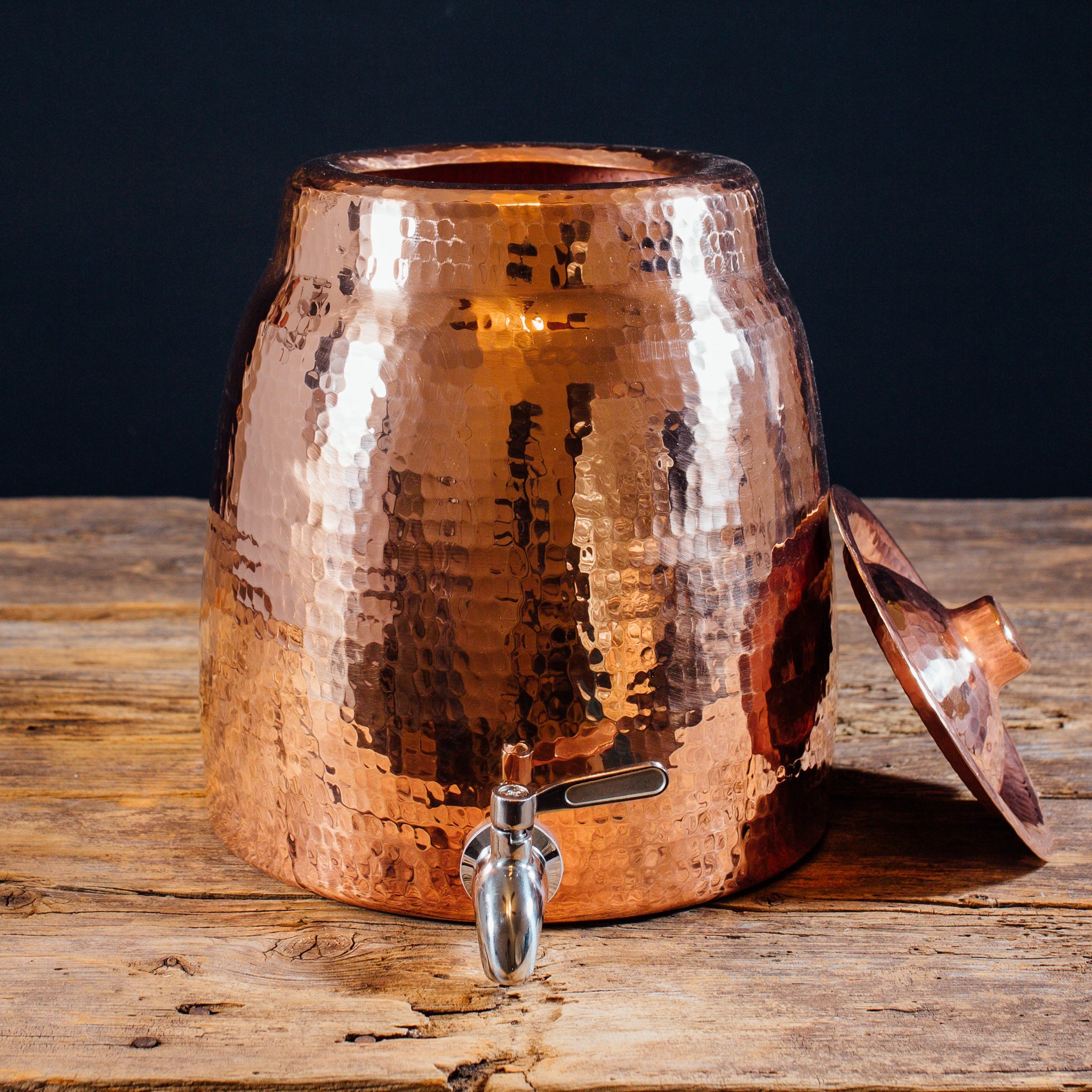Checking Out the Diverse Applications of Copper Products in Modern Industries
From boosting the effectiveness of electrical systems to playing an essential role in sustainable energy innovations, the convenience of copper is obvious. As markets increasingly prioritize development and sustainability, the varied applications of copper call for a closer evaluation, specifically regarding their prospective influence on future environmental techniques and technological advancements.
Electrical Applications of Copper
Copper is a crucial material in the electrical sector, representing approximately 60% of the total demand for non-ferrous metals globally - Copper Products. Its premium electrical conductivity, which is nearly twice that of aluminum, makes it the preferred option for a wide variety of electric applications. From wiring systems in industrial and property structures to high-voltage power transmission lines, copper makes certain effectiveness and reliability in electricity delivery
In enhancement to circuitry, copper is integral to the production of electric elements such as generators, electric motors, and transformers. These components utilize copper's thermal conductivity and pliability, important for warmth dissipation and reliable efficiency. In addition, copper's resistance to rust improves the life-span and longevity of electrical systems, making it an affordable solution in the long-term.
The growth of renewable resource sources, such as solar and wind power, has even more increased the need for copper in electrical applications. As industries transition in the direction of sustainable power solutions, copper's role comes to be also much more critical. Generally, the convenience and efficiency qualities of copper strengthen its standing as a foundation product within the electric sector, driving advancement and efficiency throughout numerous applications.
Plumbing and Piping Solutions
In modern plumbing systems, the selection of products significantly affects both performance and long life. Copper has emerged as a recommended option due to its distinct residential or commercial properties, consisting of rust resistance and antimicrobial features. These features ensure that copper piping stays risk-free and resilient for transferring drinkable water, a critical consideration in household and industrial applications.
One of the essential benefits of copper in pipes is its capacity to hold up against heats and stress, making it ideal for a selection of applications, from warm water systems to heating and cooling networks. Furthermore, copper's flexibility permits much easier setup in complex piping layouts, decreasing the risk of failings and leakages.
An additional noteworthy advantage is copper's lengthy life-span, typically going beyond half a century with correct upkeep. This durability not just minimizes replacement prices yet additionally adds to lasting practices by reducing waste. Furthermore, copper's recyclability aligns with modern environmental standards, advertising a circular economy within the pipes sector.
Copper in Renewable Energy
The adaptability of copper prolongs beyond plumbing applications, playing a crucial role in the sustainable power industry. In solar panels, copper is made use of in solar cells and electrical wiring, promoting effective power conversion and transmission.

In addition, as the global need for electrical automobiles (EVs) boosts, copper's function in battery systems and charging infrastructure becomes even extra substantial. The material's capacity to conduct power successfully is indispensable to the performance of EV batteries, improving range and charging rate.
Copper's Duty in Electronic devices
Electronic devices manufacturing relies heavily on copper's phenomenal residential or commercial properties, particularly its high electrical conductivity and thermal efficiency. These qualities make copper an optimal choice for a large range of digital elements, consisting of connectors, circuit boards, and electrical wiring. The metal's capability to efficiently send electric signals makes certain marginal power loss, which is important in high-performance electronic devices.
Moreover, copper's thermal conductivity plays a substantial duty in warm dissipation, protecting delicate components from overheating. This is specifically crucial in contemporary electronics, where compact styles lead to increased warmth generation. Copper is also favored for its pliability and ductility, allowing it to be quickly shaped right into intricate styles that satisfy the needs of sophisticated digital applications.
With the rise of customer electronics, telecoms, and electric lorries, the need for copper in the electronics industry continues to expand. Hence, copper remains a keystone material in the ever-expanding field of electronics.
Innovative Uses in Manufacturing

One significant application remains in additive manufacturing, where copper-based materials are employed in 3D printing procedures. This enables for the creation of complicated geometries and lightweight link parts, particularly in the aerospace and vehicle industries. In addition, copper's thermal conductivity makes it a suitable option for heat exchangers, enhancing efficiency in commercial air conditioning systems.
Additionally, the surge of wise production has seen the unification of copper in IoT devices, where its conductive capacities support advanced sensing innovations. In the world of renewable resource, copper is pivotal in the manufacturing of photovoltaic panels and wind turbines, promoting more effective power conversion and distribution.
As markets pursue sustainability and innovation, copper's adaptability and efficiency remain to place it as a critical product, driving advancements in manufacturing and adding to the growth of smarter, more effective products.
Verdict
The important function of copper in sustainable energy and its important function in electronic devices emphasize its relevance in progressing sustainable practices. Collectively, these applications illustrate copper's critical payment to technical development and industrial efficiency in modern culture.
From improving the efficiency of electrical systems to playing a critical role in renewable power technologies, the versatility of copper is obvious. As markets significantly focus on advancement useful site and sustainability, the varied applications of copper require a closer evaluation, particularly regarding their possible effect other on future technical advancements and environmental methods.
The development of eco-friendly power resources, such as solar and wind power, has even more enhanced the demand for copper in electric applications. Generally, the versatility and efficiency attributes of copper solidify its condition as a cornerstone material within the electric market, driving advancement and effectiveness throughout different applications.
The flexibility of copper expands past plumbing applications, playing a crucial role in the eco-friendly energy sector.